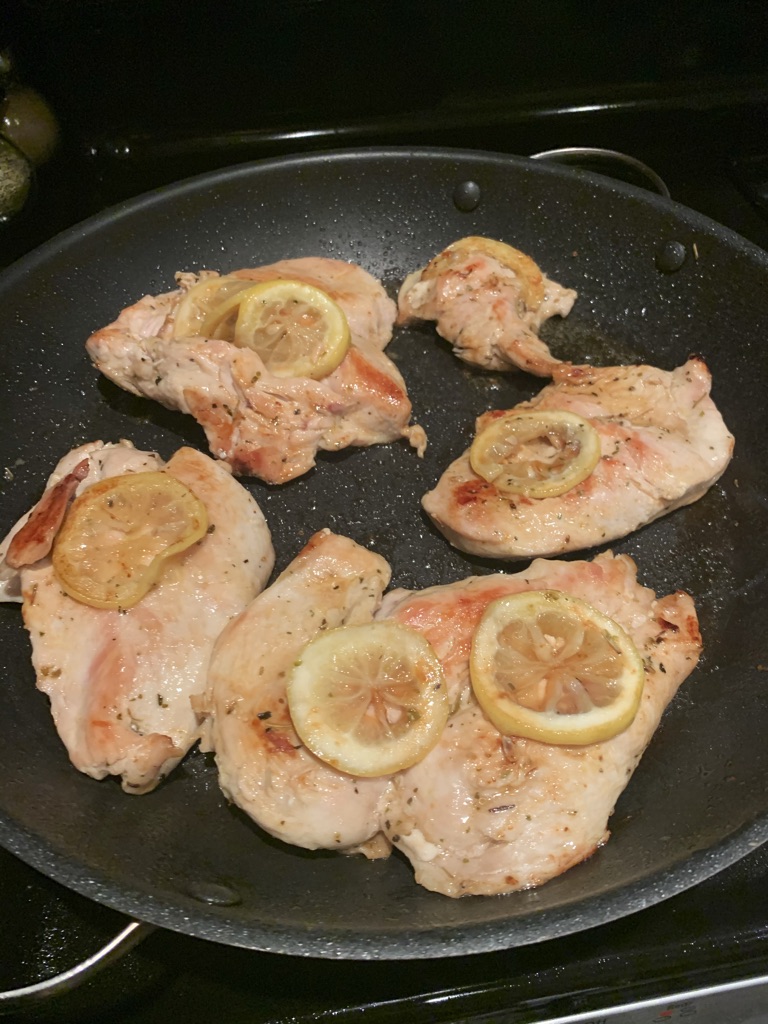Hola Mamis!
Hola Everyone!!!
Last week we had an amazing guest at our Facebook Live, Dr. Naty Cifuentes who talked to us about Breast Cancer. Dr. Naty Cifuentes is an expert in women’s health. If you haven’t read all about her incredible career, I urge you to check out my previous blog about her HERE.
What is Breast Cancer?
Breast cancer affects more women but especially Latina women. It is important to detect early in order to fight, although if it is detected later, it can also be fought, it is more difficult. It is important to be informed and to know the risk factors and what to do to prevent breast cancer or to know what to do if you are part of a high risk group.
Symptoms of breast cancer may include a lump in the breast, bloody discharge from the nipple, and changes in the shape or texture of the nipple or breast. Treatment depends on the stage of the cancer. It may consist of chemotherapy, radiation, and surgery.
Can Breast Cancer be prevented?
- There isn’t a magical pill or vaccine that can prevent this cancer.
- There ARE risk factors we must consider.
- Something very important is knowing your risk factors.
- There are risk factors that can be modified and others that cannot.
- 150 minutes per week of exercise helps decrease the risk factor.
- 75 minutes per week of vigorous exercise further helps decrease the risk factor.
- Good nutrition and not being overweight also helps decrease the risk factor.
- Increased estrogens increase the risk factor, for example when we are overweight, our body takes that extra estrogen and converts it into increased estrogen that can lead to breast cancer.
- Women who drink more than two glasses of alcohol per day, increase their risk of developing breast cancer to 20%.
- Breastfeeding protects against breast cancer.
- Monthly breast self-exam helps detect differences or changes early so you can see your doctor on time.
Risk Factors
- Some risk factors can be modified.
- People who are at high risk are 5% to 10% in those women who have a maternal family on their mother’s side who have had breast cancer. It would be ideal to consult your doctor to verify that you do not have that gene that is positive for breast cancer. If you have that inheritance, you have a 90% chance that at 50 years you have breast cancer too.
- It is important to detect early in order to take action and medications or decide on a plan.
- More prevalent in women
- Aging, from 50 years of age there is more risk.
- The women who had their menstruation at an early age.
- Women who have not had pregnancies.
- Women who have reached menopause very late.
How can I predetermine if I have the gene for breast cancer?
Blood test to see on the chromosomes to see if this gene is present or not. Consult your doctor to confirm early on if there is someone in your family with breast cancer.
Myths of breast cancer
- If no one in my family has breast cancer, then it won’t happen to me. This is a myth since genetic breast cancer occurs in 5% of cases and 90% occurs from other causes, which is why we are all at risk even if we do not have the genetic alteration.
- Failing to breastfeed causes breast cancer. No, although breastfeeding protects you, it does not mean that the non-breastfed woman is at risk.
- Mammography causes cancer, not mammography does not cause cancer, it helps detect breast cancer.
- Underwire braw causes breast cancer, no, it does not cause breast cancer.
How can I fight breast cancer?
- Women who have a predisposition to breast cancer take the tests from before age 30.
- At the age of 40-50 years, depending on the risk factors that you have and consulting with your doctor, it may be a good idea to do the exam.
- At the age of 50, it is necessary to have a breast test.
- A mastectomy surgery to remove the entire breast.
- A lumpectomy surgery to remove a portion of the breast tissue.
- Surgery to remove nearby lymph nodes
- Chemotherapy, using special medications to shrink or kill cancer cells.
- Hormone therapy to stop cancer cells from getting the hormones they need to grow.
Tips for when doing a mammogram
- Do not get a mammogram too close to your period or during your period since breasts get more inflamed.
- On the day of your mammogram, do not wear deodorants, powders, or perfumes because those sprinkles can appear on the x-ray.
- Try wearing pants and a shirt instead of a dress.
If you missed the live interview, check out the recording on YouTube.
If you prefer to just listen to the interview, check out our podcast episode on the topic.
To get in touch with Dr. Naty Cifuentes, follow her on social media:

To learn more about Dr. Naty Cifuente’s Foundation:
Don’t miss upcoming Facebook Live Interviews!

This Live interview and distribution was made possible by the sponsorship of ASKDRLOPEZ head over to their page for naturally derived haircare and skincare products.
Que es el cancer de mama?
El cancer de mama afecta mas a las mujeres pero sobre todo a la mujer latina. Es importante detectar temprano para poder combatir aunque si se detecta más tarde, también se puede combatir, es mas difícil. Es importante estar informada y saber los factores de riesgo y que hacer para prevenir el cancer de mama o saber que hacer si es parte de un grupo de alto riesgo.
Los síntomas del cáncer de mama pueden incluir un bulto en el seno, secreción sanguinolenta del pezón y cambios en la forma o textura del pezón o seno. El tratamiento depende de la etapa del cáncer. Puede consistir en quimioterapia, radiación y cirugía.
Se puede prevenir el cancer de mama?
- No existe una pastilla ni vacuna que la puede prevenir.
- Algo muy importante es conocer tus factores de riesgo.
- Hay factores de riesgo que se pueden modificar y otros que no.
- 150 minutos por semana de ejercito ayuda a disminuye el factor de riesgo.
- 75 minutos por semana de ejercicio vigoroso ayuda aun mas a disminuir el factor de riesgo.
- Buena alimentación y no entrar en sobrepeso también ayuda a disminuir el factor de riesgo.
- Los estrogens aumentados, aumentan el factor de riesgo, por ejemplo cuando estamos sobre peso, nuestro cuerpo toma esa grafista extra y la convierte en estrogeno aumentado que puede llevar a ser el cancer de mama.
- Las mujeres que toman mas de dos vasos de alcohol por día, aumenta al 20% tu riesgo de desarrollar el cancer de mama.
- La lactancia materna protegen contra el cancer de mama.
- Auto-examen mensual de mama ayuda a detectar diferencias o cambios temprano para poder consultar con su medico a tiempo.
Factores de Riesgo
- Hay factores de riesgo que no se pueden dar cancer de mama.
- Algunos factores de riesgo pueden ser modificados.
- Las personas que están en alto riesgo son del 5% al 10% en aquellas mujeres que por el lado de su madre tienen familia materna que han tenido cancer de mama. Seria ideal consultar a tu medico para verificar que no tengas ese gen que es positivo para cancer de mama. Si tienes esa herencia, tienes el 90% de probabilidad de que a los 50 anos tengas el cancer de mama también. Por lo cual es importante detectar temprano para poder tomar ación y medicamentos o decidir en un plan.
- Mas prevalente en las mujeres
- El envejecimiento, a partir de los 50 anos de edad hay mas riesgo.
- Las mujer que tuvieron su menstruacion a muy temprana edad.
- Las mujeres que no han tenido embarazos.
- Las mujeres a quienes le han llegado la menopausia muy tarde.
Como se puede predeterminar si tengo el gen de cancer de mama?
Examen de sangre para ver en los cromosomas para ver si este gen esta presente o no. Consulta a tu medico para confirmar si hay alguien en tu familia con cancer de mama.
Mitos de el cancer de mama
- Si nadie en mi familia tiene cancer de mama, entonces a mi no me va a dar. Esto es un mito ya que el cancer de mama genético, se le da a 5% de los casos y el 90% se le da por otras causas, por lo cual todas estamos en riesgo aunque no tengamos la alteración genética.
- El no poder lactar causa cancer de mama. No, aunque el lactar te protege, no quiere decir que la mujer que no a lactado esta en riesgo.
- La mamografía causa cancer, no la mamografía no causa cancer, ayuda a detectar el cancer de mama.
- El sujetador con arcos causa cancer, no, ningún sujetador causa cancer.
Como puedo combatir el cancer de mama?
- Las mujeres que tienen predisposición de el cancer de mama, se toman los exámenes desde antes de los 30.
- La edad de los 40-50 anos, de acuerdo de los factores de riesgo que tu tengas y consultando con tu medico, tal vez sera buena idea hacerte el examen.
- A partir de los 50 anos, es necesario hacerse la prueba de mama.
- Hacer una mastectomía, cirugía para extirpar todo el seno.
- Hacer una lumpectomía, cirugía para extraer una porción del tejido de mama.
- Cirugía para extirpar ganglios linfáticos cercanos
- Quimioterapia, usar medicamentos especiales para reducir o eliminar las células cancerosas.
- Terapia hormonal, impide que las células cancerosas obtengan las hormonas que necesitan para crecer.
Consejos para cuando se hace una mamografía
- No te hagas una mamografía muy cerca a tu periodo ni durante ya que las mamas se ponen mas inflamadas.
- El día de tu mamografía, no te pongas desodorantes, ni talcos, ni perfumes porque esas marchitas pueden salir en la radiografía.
- Intenta usar un pantalón y camisa en lugar de un vestido.
Si te perdiste la entrevista en vivo, mira la grabación en YouTube.
Si prefiere escuchar la entrevista, consulte nuestro episodio de podcast sobre el tema.
¡No te pierdas las próximas entrevistas en vivo de Facebook!
Esta entrevista y distribución en vivo fue posible gracias al patrocinio de ASKDRLOPEZ en su página para productos de cuidado del cabello y cuidado de la piel derivados naturalmente.
XOXO,
LA Mami,
Julie Lopez











Leave a Reply